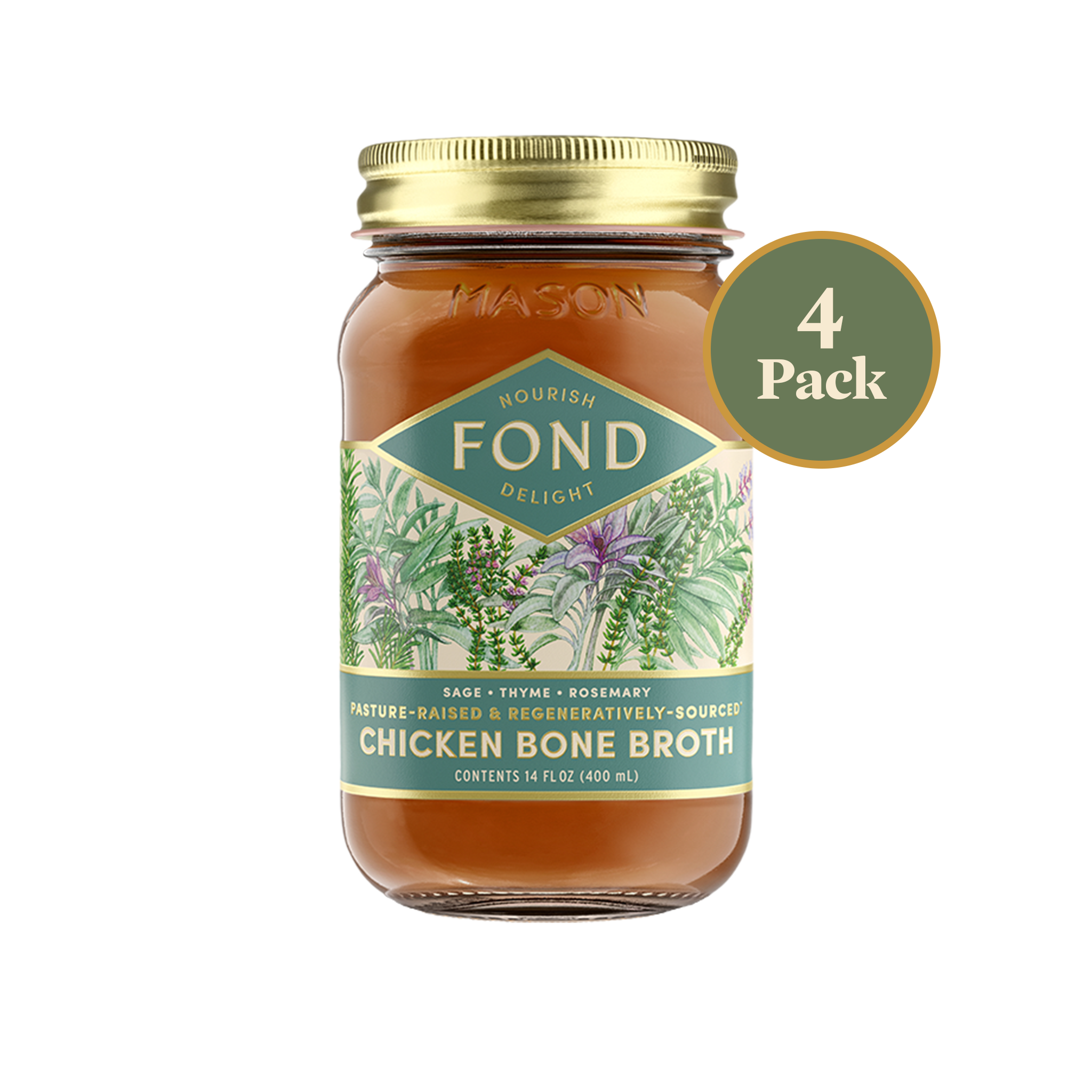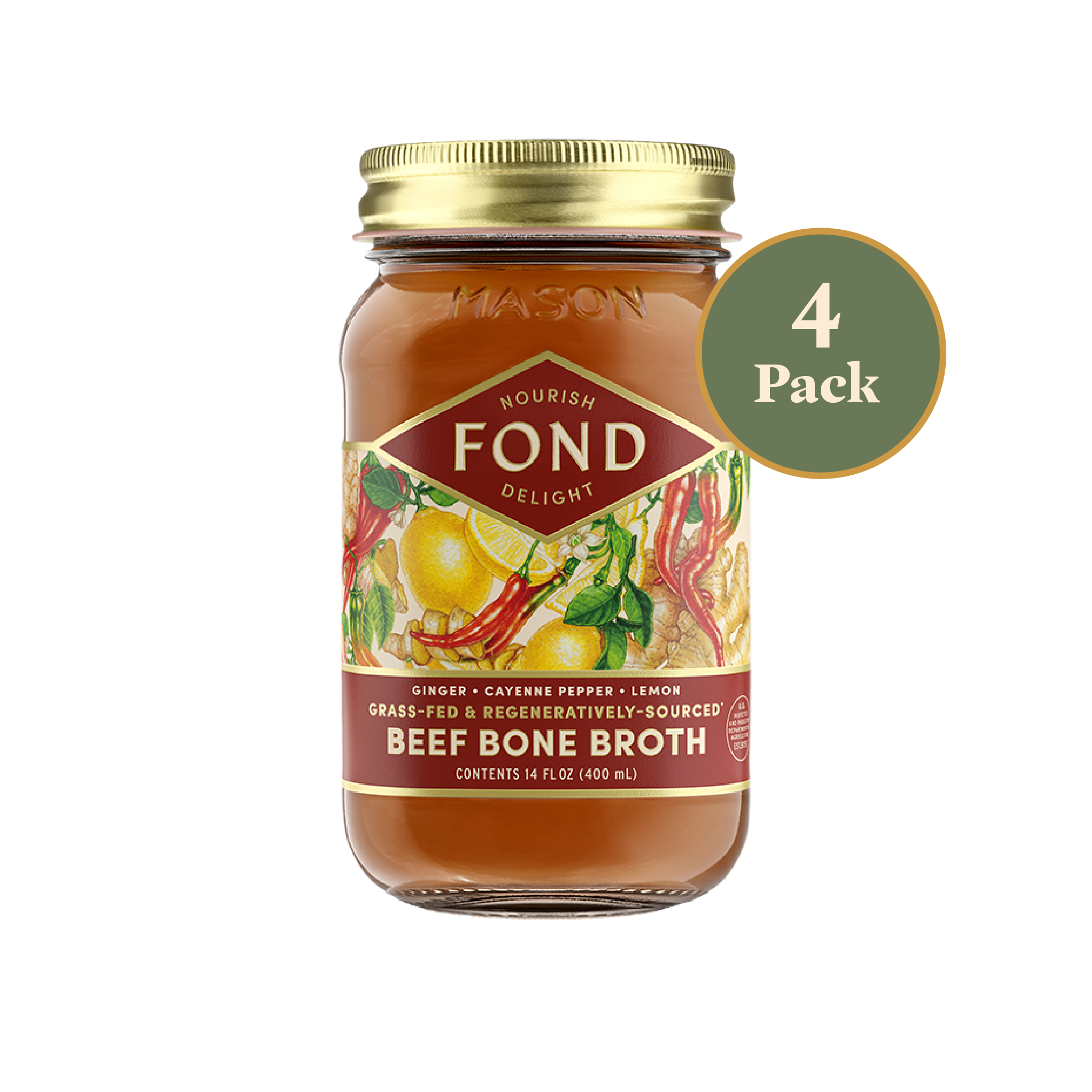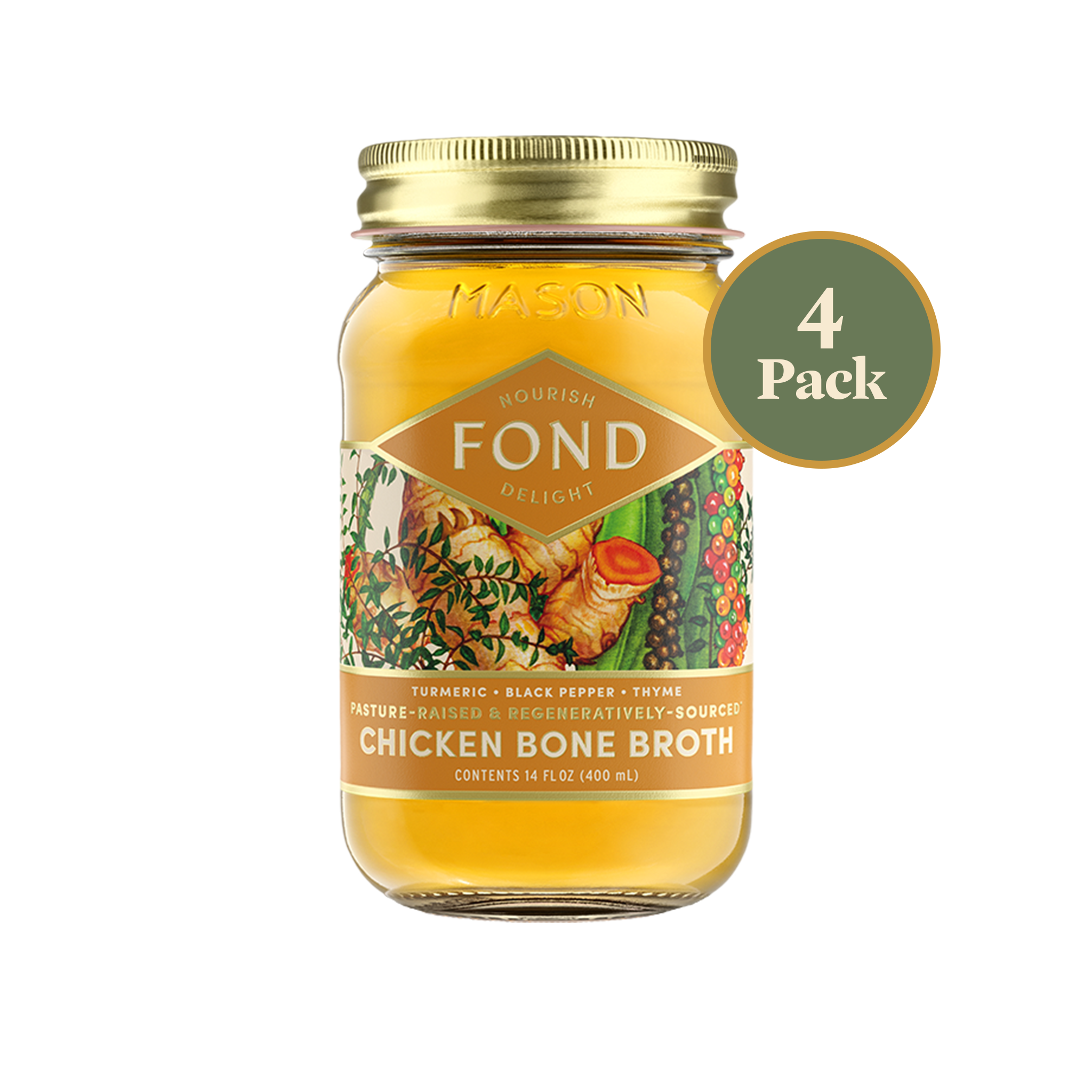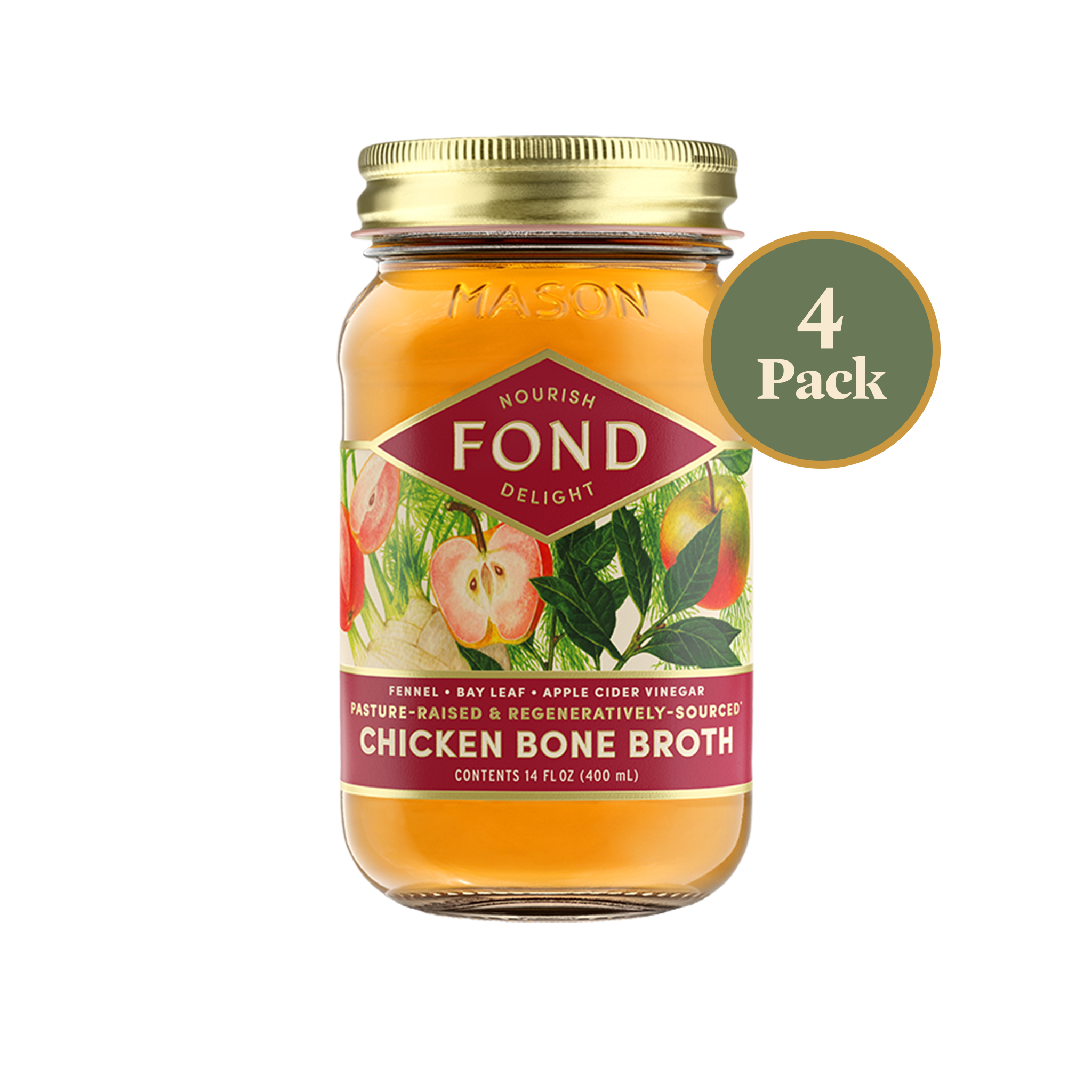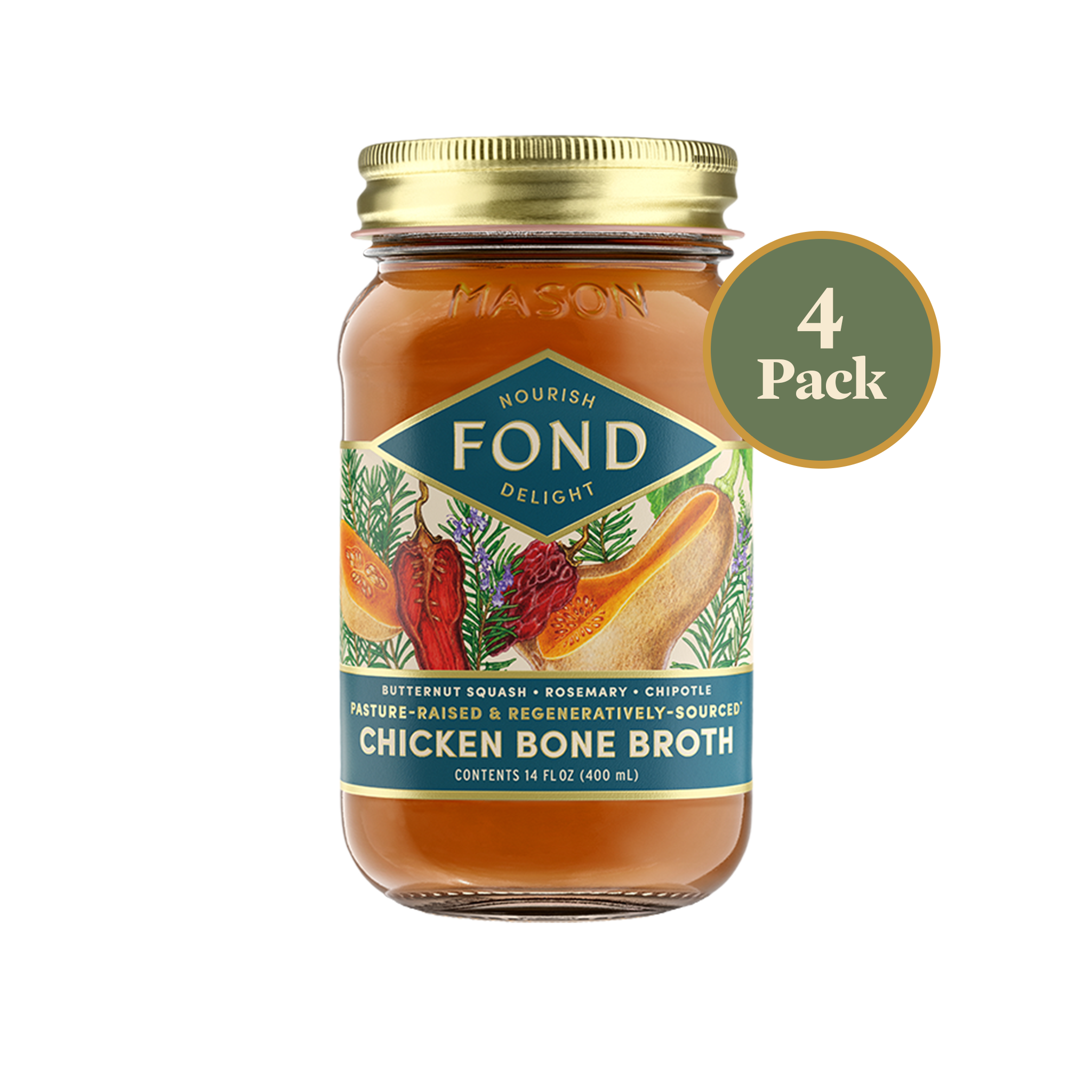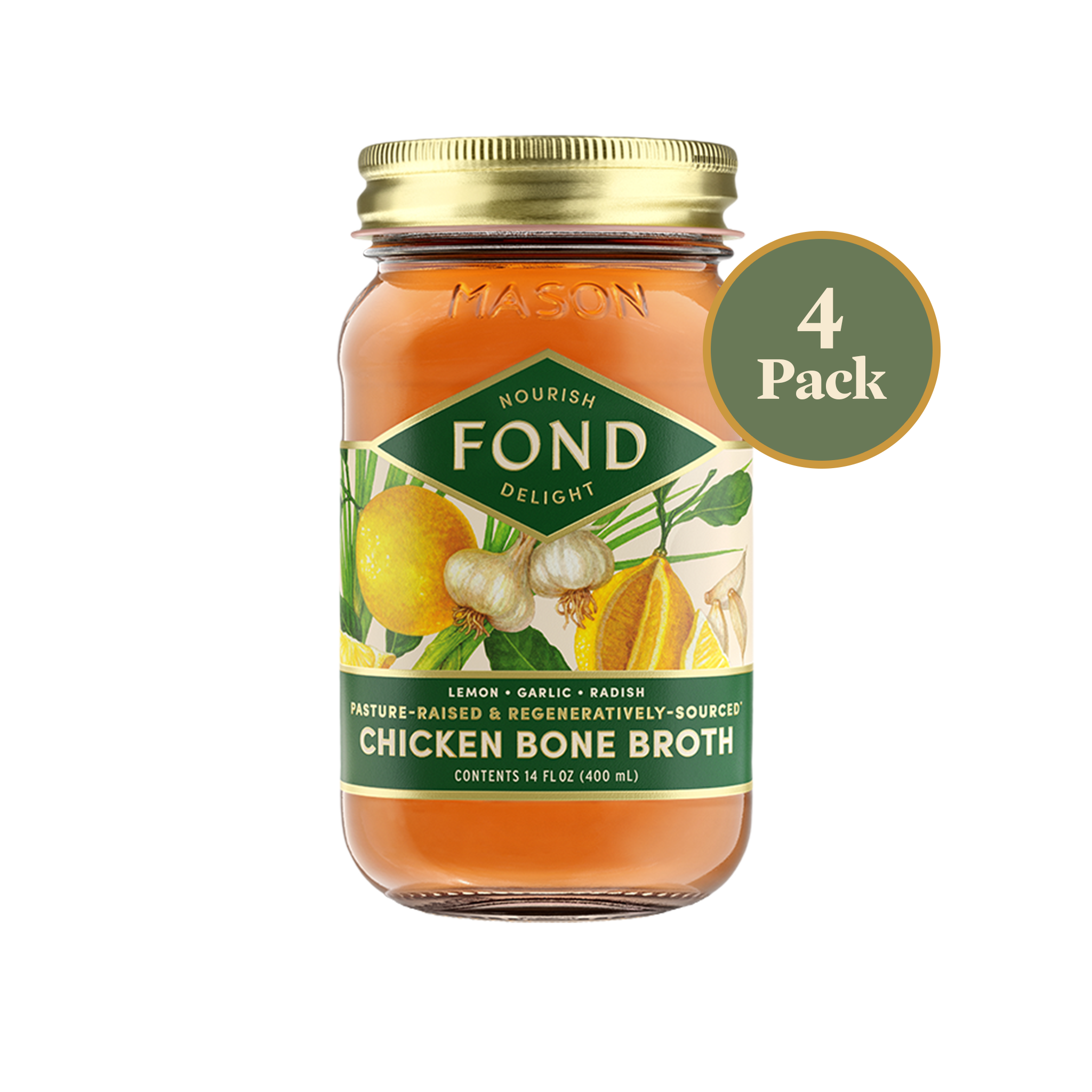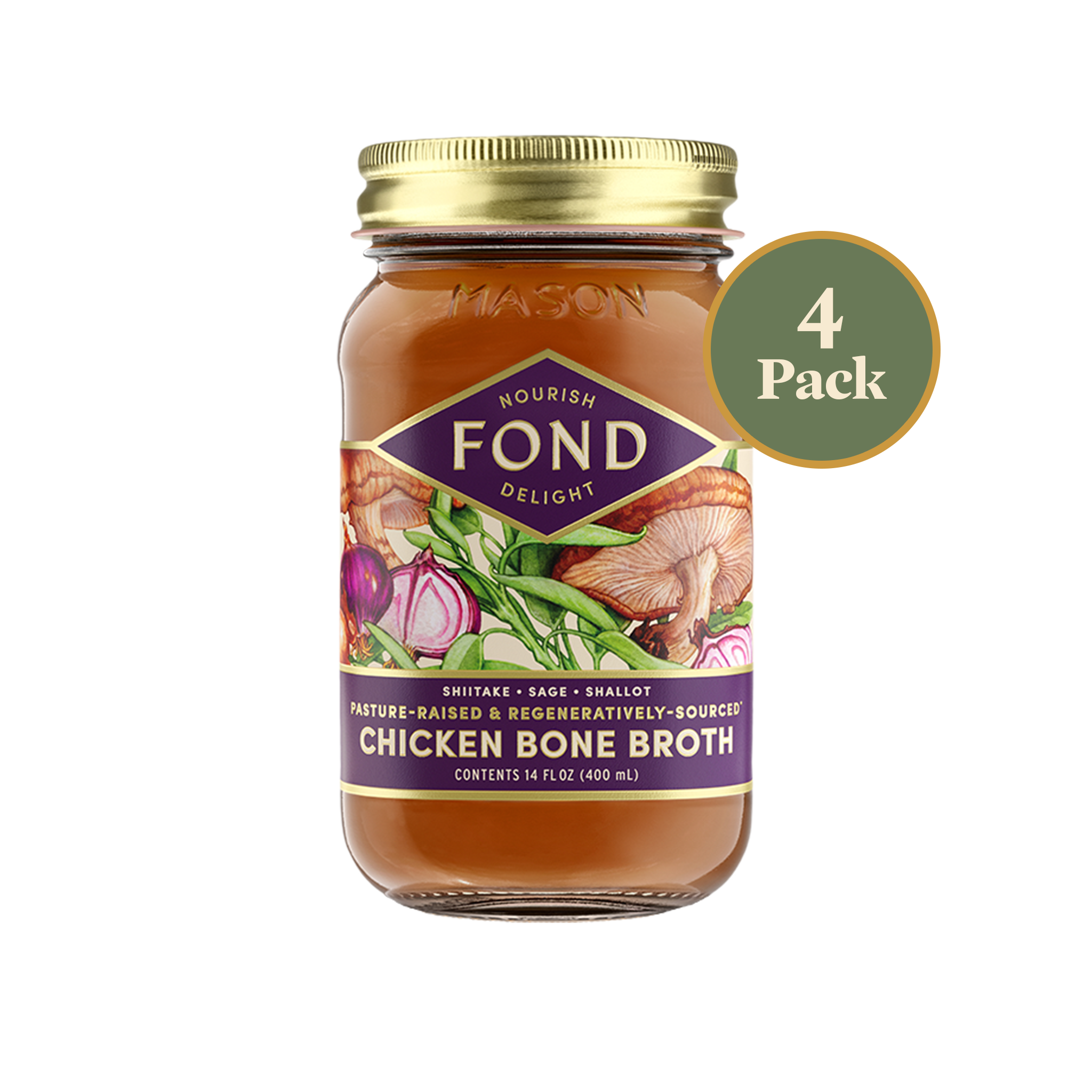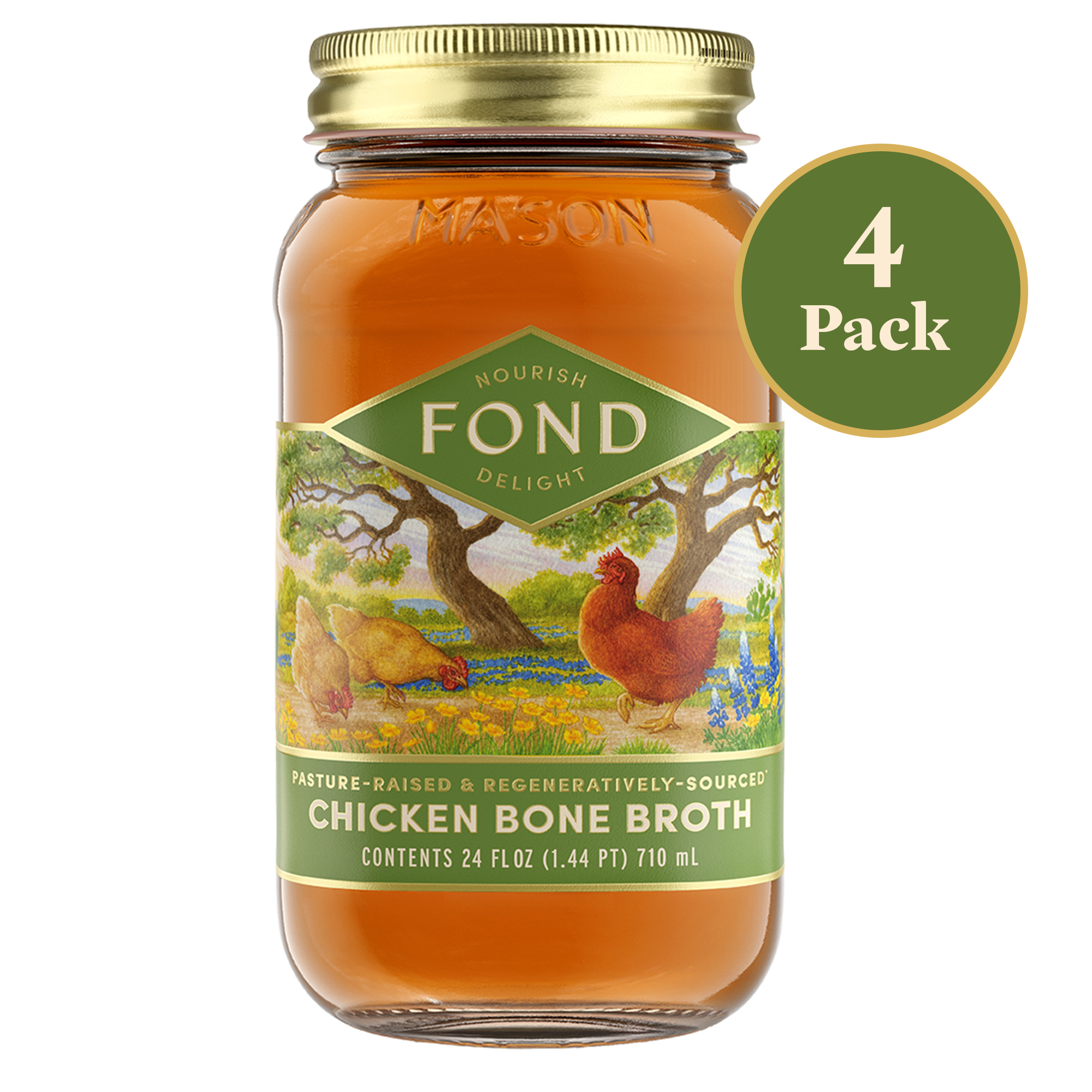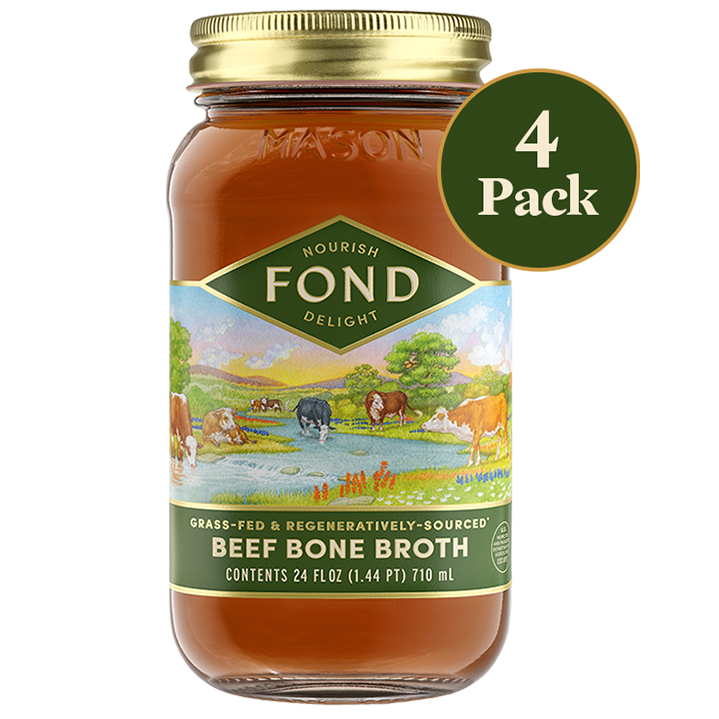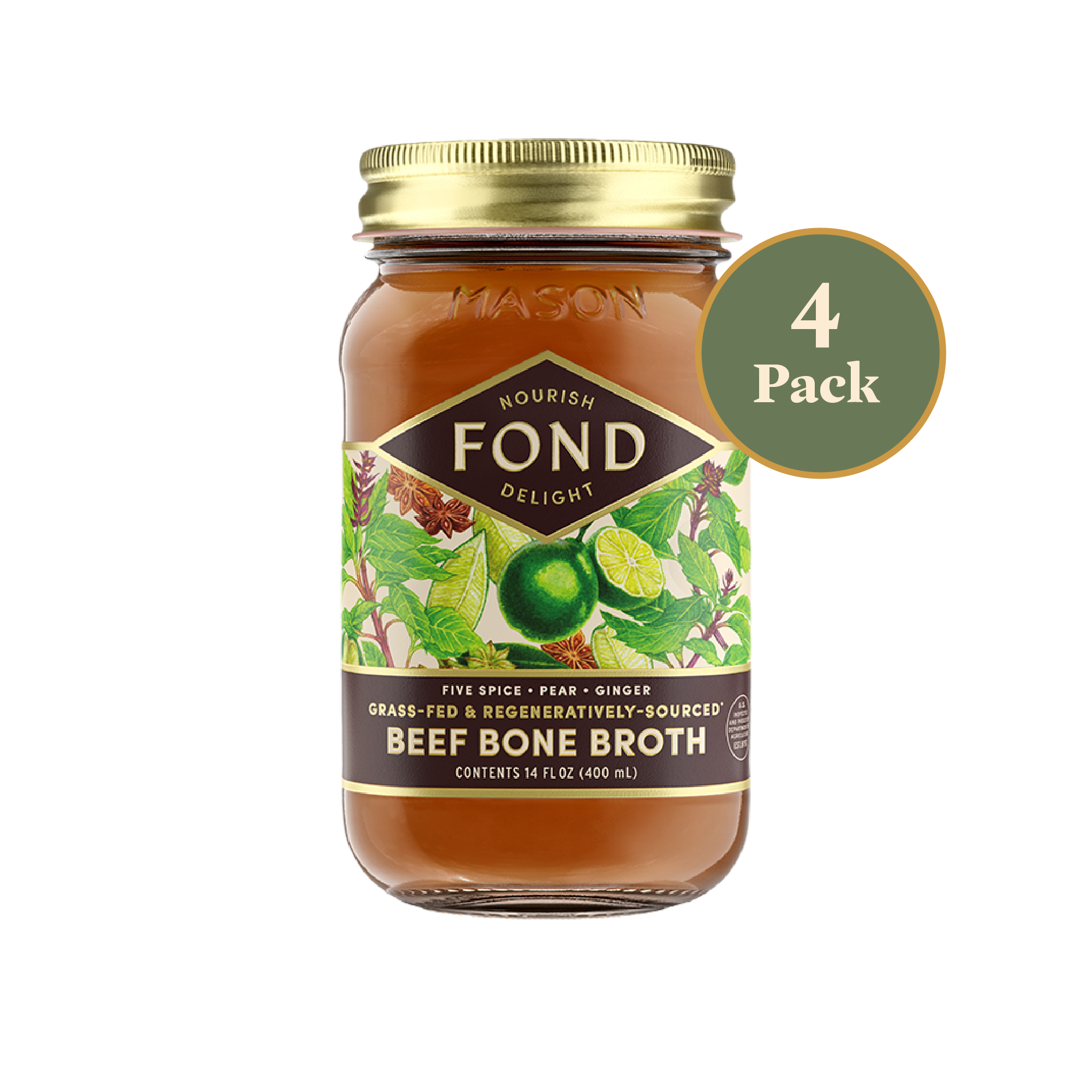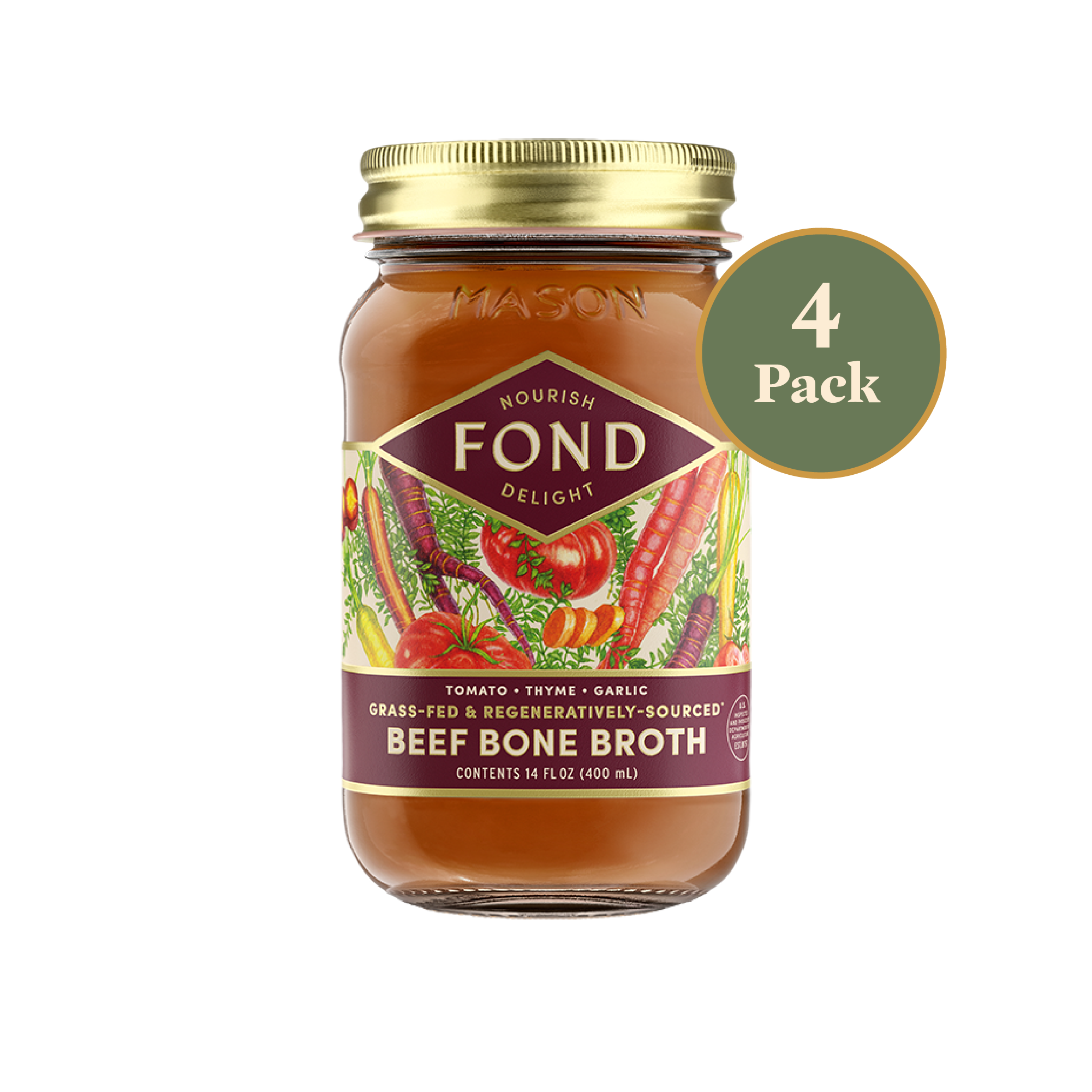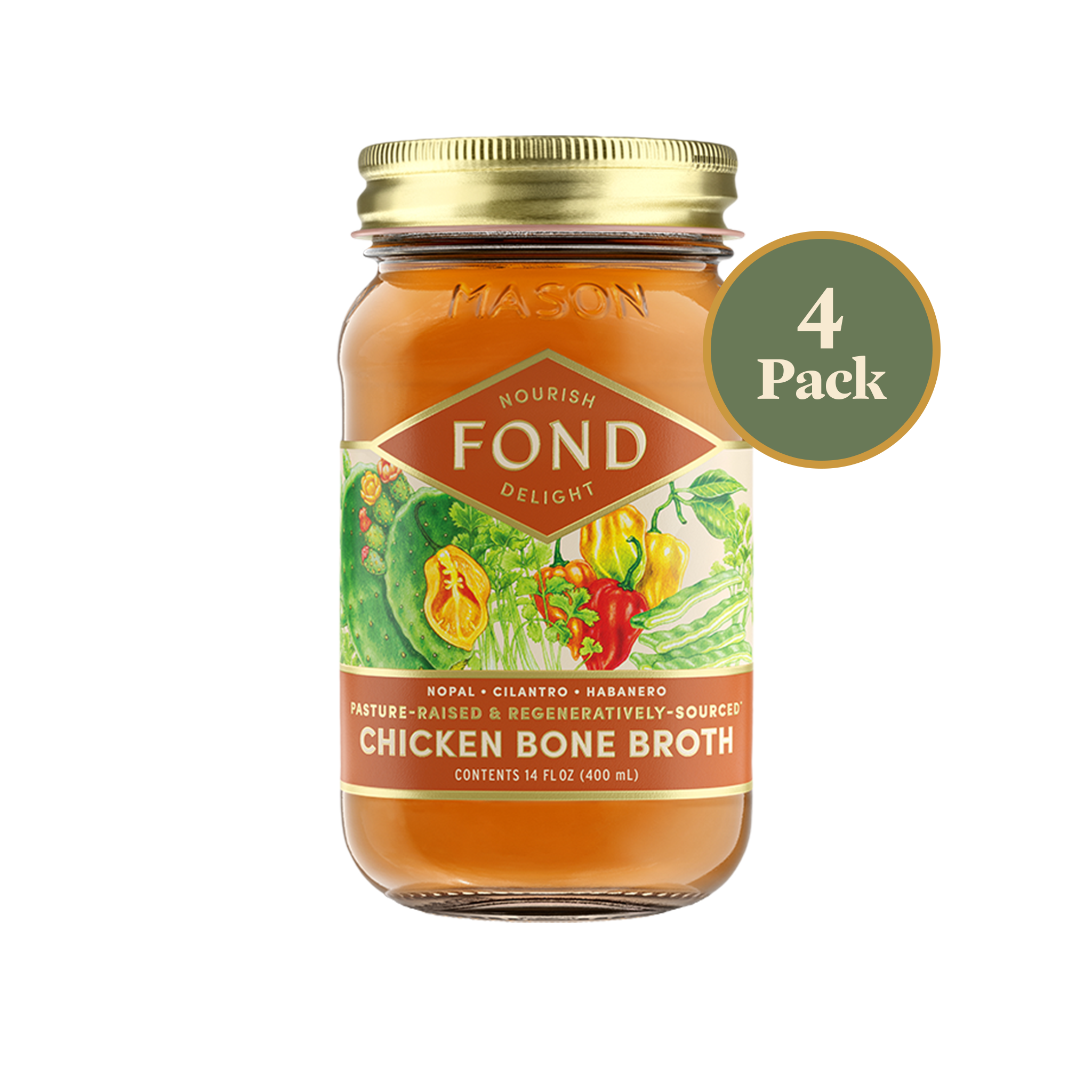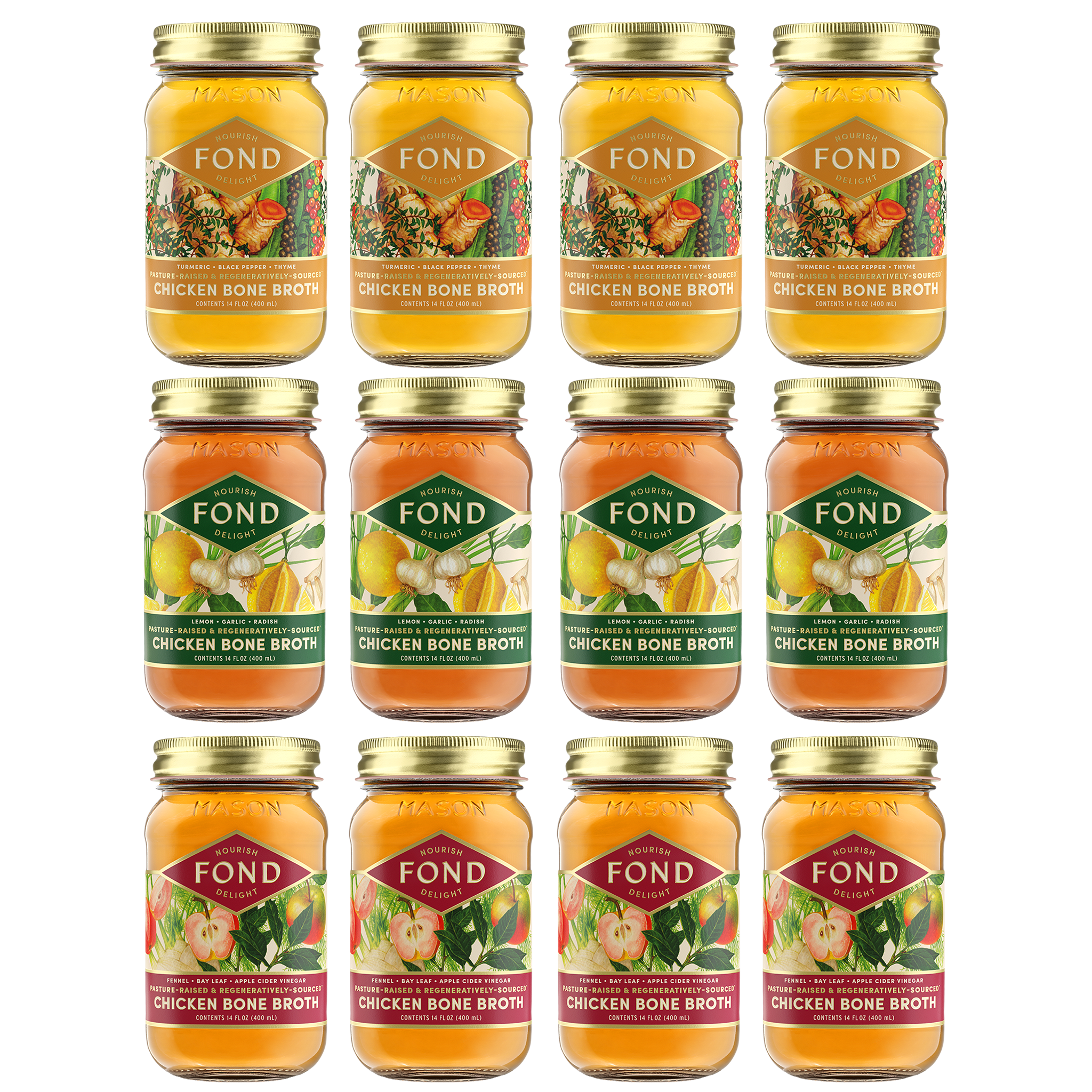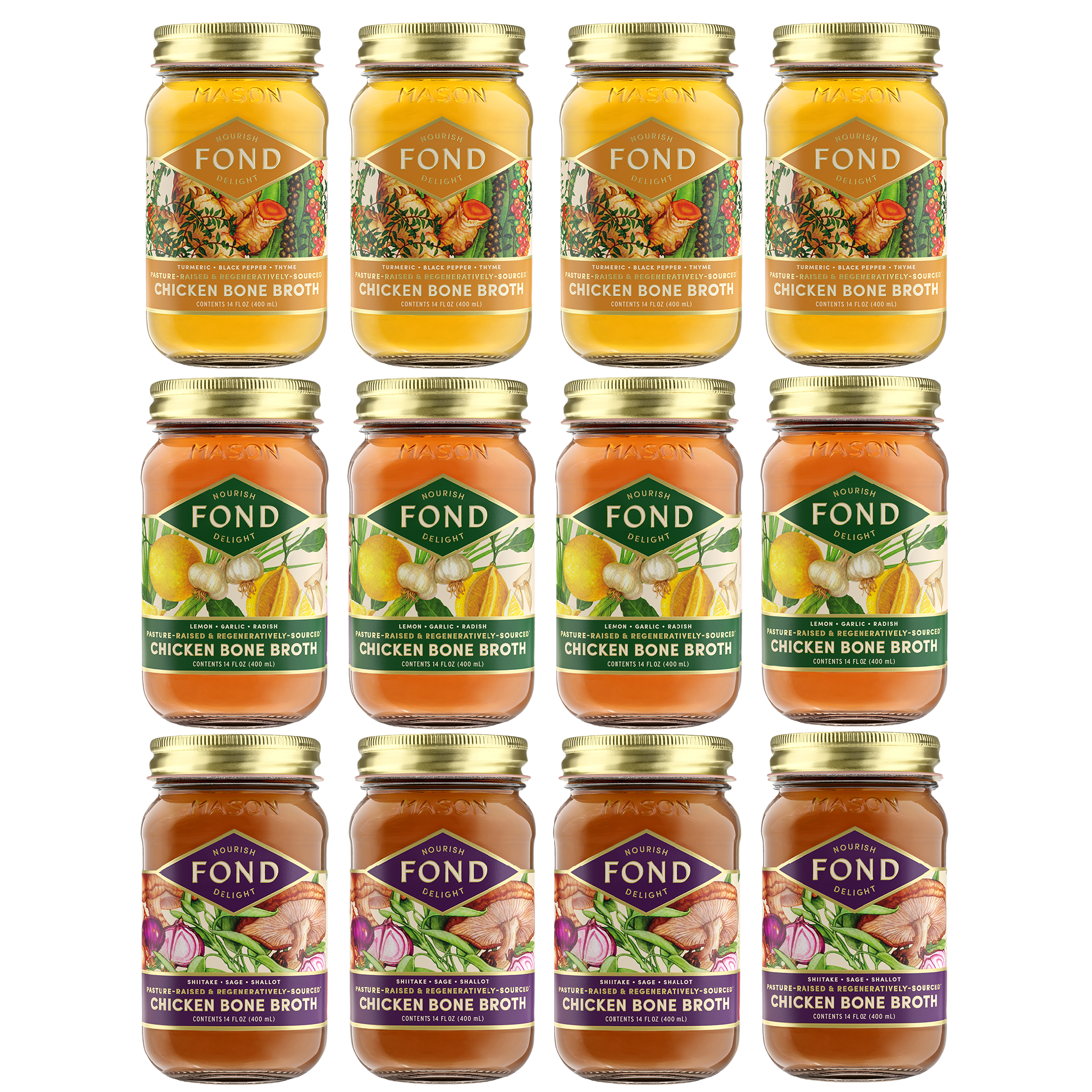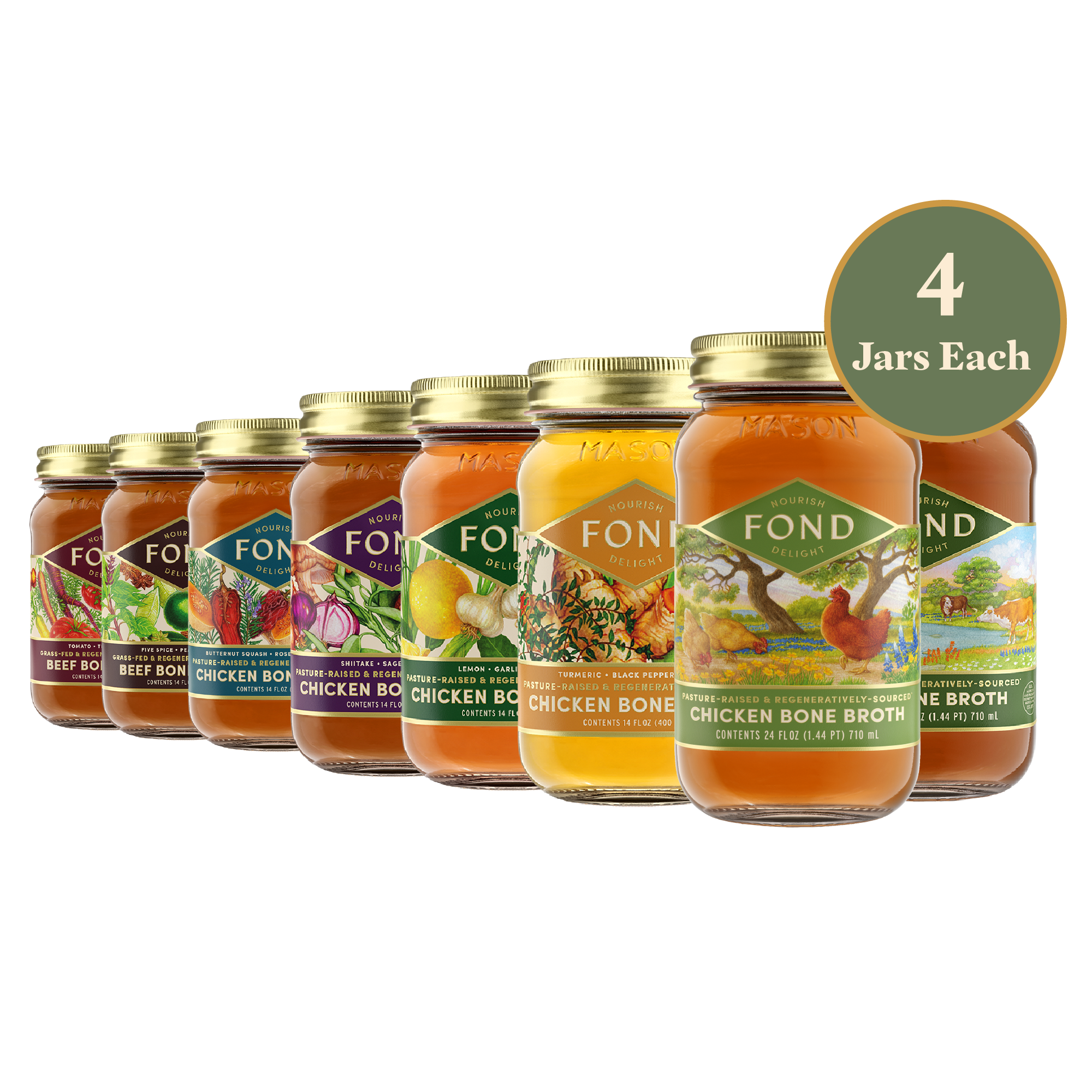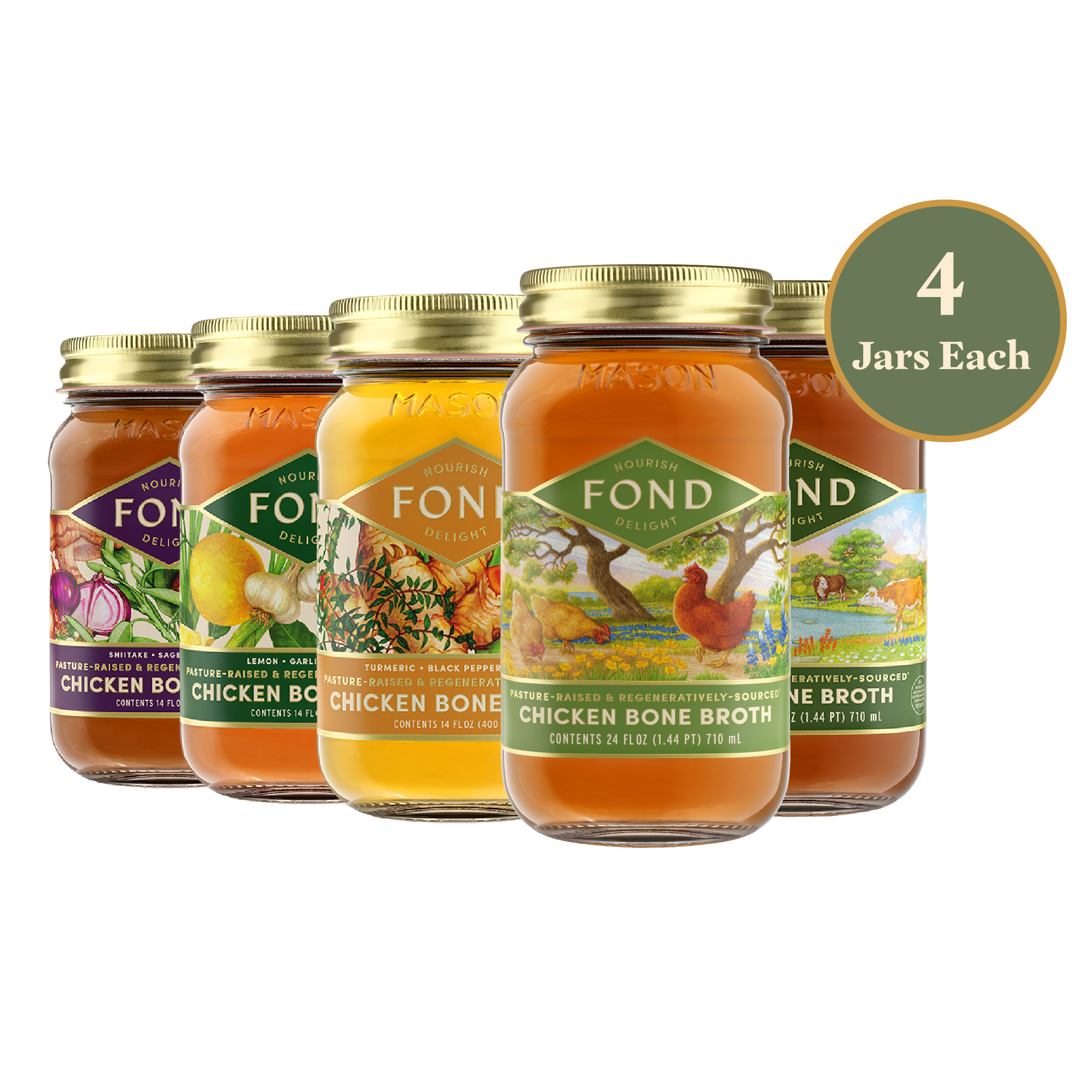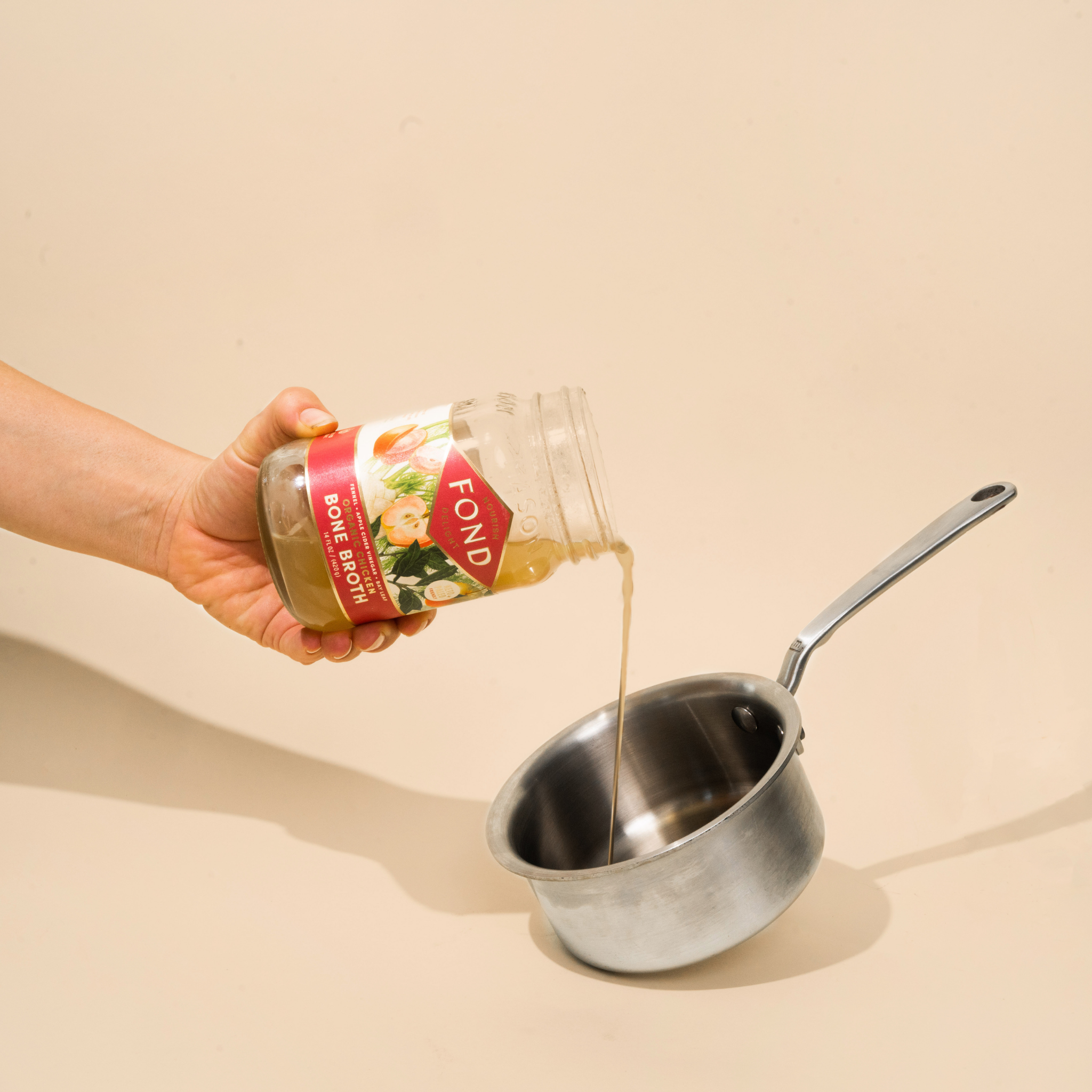Because April is Stress Awareness Month, and since this last year has left many of us feeling more frazzled and stressed than ever, we want to talk all about it - including some of the pitfalls of chronic stress and how small changes, like drinking bone broth, can help. If this past year has taught us anything, it's the importance of taking care of ourselves - both mentally and physically!
What is Stress?
"Stress is a normal human reaction that happens to everyone. In fact, the human body is designed to experience stress and react to it. When you experience changes or challenges (stressors), your body produces physical and mental responses. That’s stress." - Cleveland Clinic
Stress triggers the autonomic nervous system, specifically the sympathetic nervous system, leading to a spike in the release of epinephrine and cortisol — the “stress hormones.” Too much epinephrine can increase the risk of heart attacks and strokes, and too much cortisol can affect our health in numerous ways — by increasing blood sugar levels, suppressing the immune system, and constricting blood vessels.
Stress is essentially your body's alarm system, telling you that something is wrong and that it's time to do something about it. In and of itself, stress is not a bad thing. At its best, stress causes you to stay alert, motivated and avoid danger.
Stress becomes chronic when our bodies are unable to switch easily between the sympathetic and parasympathetic nervous systems, instead spending most of the time in the sympathetic, or "fight or flight" mode. With chronic stress, symptoms become more noticeable as they affect us physically. Ongoing stress can disturb our immune, digestive, cardiovascular, sleep, and reproductive systems, which means it impacts almost every part of the body.
The Impact of Chronic Stress
Symptoms of both acute and chronic stress can include:
- Aches and pains
- Chest pain or a feeling like your heart is racing
- Exhaustion or trouble sleeping
- Headaches, dizziness or shaking
- High blood pressure
- Muscle tension or jaw clenching
- Stomach or digestive problems
- Low libido
- Weak immune system
But chronic stress can also manifest itself in other ways, including cardiovascular and metabolic diseases, digestive disorders, inflammation, autoimmune diseases, and even neurodegenerative disorders. It's a staggering statistic, but 75-90% of all disease is related to stress and inflammation.
Stress hormones can also damage the hippocampus (our brain's memory center!), causing memory loss and dementia.
Ways to Prevent or Combat Stress
The good news is that, at least to some degree, we have the power to change our thoughts and attitudes, and improve our health in the process. But it's also about finding balance in our physical health too, by optimizing nutrition (and in turn, gut health!), moving our bodies, and even supplementing.
Exercise
Virtually any form of exercise can act as a stress reliever, from yoga to running to tai chi. Being active and moving your body releases endorphins that allow you to feel good and worry less. Trust us, it works! Exercise is a potent stress-reliever and anti-anxiety tool. But exercise is also a stress on the body (albeit a good one!), so don't go overboard.
Journal
Exploring your thoughts and feelings by writing in a journal is an easy way for anyone to manage stress. This works best when you are consistent, focus your time on gratitude or emotional processing, and brainstorm solutions. In time, journaling may help you change your beliefs and reframe how you respond to stressful situations in your life.
Meditation/Breath Work
Meditation has been scientifically proven to help alleviate stress after just eight weeks of a regular practice. In training the mind to be more open and less reactive, we are better able to cope when life’s stressors start accumulating.
Eat a Balanced Diet
What you eat can literally make or break your stress levels. Ali Miller, RD, CDCES, an integrative dietitian (and FOND practitioner!) and the author of The Anti-Anxiety Diet, refined carbs such as cookies and potato chips can spike blood sugar and then cause it to crash, increasing stress and anxiety. Choosing healthy foods such as bone broth, avocados, eggs, and walnuts has the opposite effect — creating a “favorable hormone signaling in the brain, which supports satiety, mood regulation, and sleep and energy balance,” Miller says.
In other words? Aim to balance your plate! When building a meal, always pair high-quality protein with healthy fats and ample veggies. Any rich sources of carbs should be a side dish, rather than the star of the show.
Another helpful strategy for improving anxiety and stress response through food? Eat (and drink!) more of the commonly overlooked amino acids! Two 'non-essential' (meaning the body can produce them) amino acids, glycine and proline, have been linked to improved health, and they're abundant in bone broth! Here are three ways these two amino acids can mean big improvements in anxiety management.
-
- According Miller, glycine aids digestion by enhancing hydrochloric acid production in the stomach. It acts to improve vitamin and mineral absorption and sooth the digestive tract. So drink AND cook with your bone broth!
- Harvard Medical School says that the gut-brain connection is virtually undisputed. Taking care of your gut health is known to reduce if not eliminate anxiety, depression, mood swings and more!
- Glycine slows down the production of norepinephrine which induces feelings of anxiety. This can either decrease specific instances of anxiety, or lessen the intensity of the feelings when they do come on.
Our modern diets are woefully deficient in things like collagen, glutamine, glycine, and proline! Drinking bone broth regularly and cooking with it daily are great ways to consistently ensure a good supply of nutrients to keep that gut happy and healthy!
Supplement
We won't lie and say you can out-supplement less-than-stellar diet and lifestyle choices, but certain micronutrients and adaptogens can improve your body's response to stress. These include vitamin C, methylated B vitamins, zinc, and most importantly, magnesium (key for relaxation!). Adaptogenic herbs like ashwagandha, ginseng, and cordyceps can be helpful as well.
There are also certain targeted supplements that can work wonders for stress and anxiety, including 5HTP, GABA and L-tryptophan. These may also increase your body's serotonin levels (improving things like anxiety and stress response!).
Find a Community
Especially right now, in the midst of a pandemic when community has become a rarity, it's more important than ever. Nurture your network of friends, family, neighbors, and coworkers. Those who belong to a group have lower risk of death from all causes and also have increased longevity, regardless of health habits.
When possible, address the underlying cause of stress
Sometimes, try as we might, we can't meditate our way out of a bad situation. Where possible, get to the root of your stress. If you are working in an unfulfilling job and have the power to change that, fantastic. If you're feeling extra stress and anxiety due to a vitamin deficiency (like magnesium or B12), food sensitivities, or gut dysbiosis, getting those rectified might literally improve your mood.
Other ways to prevent or combat stress include setting healthy boundaries, learning to say no, spending time with loves ones, laughing, listening to your favorite music, aromatherapy and positive self-talk. There is no one thing that works for everyone. Instead, work to find what's best for you!
Bone Broth and Stress
Caring for your gut is essential in times of stress. Stress alone—from mental or emotional stressors—can directly drive damage to gut tissue by depleting glutamine and sending panic signals through the enteric nervous system, the second brain in your gut regulated by your microbiome.
Fueling your gut with foods rich in L-glutamine and connective tissue compounds can combat stress. Bone broth provides a rich source of glutamine along with connective tissue support from collagen and gelatin. This synergy of ingredients makes bone broth the most powerful gut-supporting ingredient.
You can stock up on FOND Bone Broth here.
Resources:
https://my.clevelandclinic.org/health/articles/11874-stress
https://www.nimh.nih.gov/health/publications/stress/index.shtml
https://www.healthline.com/nutrition/stress-relieving-foods
https://www.verywellmind.com/the-benefits-of-journaling-for-stress-management-3144611
https://www.headspace.com/meditation/stress
https://www.mindbodygreen.com/articles/bone-broth-for-stress
https://drhyman.com/blog/2010/05/19/stress-tips-calm-your-mind-heal-your-body/
https://chriskresser.com/how-stress-wreaks-havoc-on-your-gut/
https://chriskresser.com/5-simple-but-powerful-tools-for-fighting-stress/
https://www.ifm.org/news-insights/inflam-stress-inflammation-contribute-chronic-disease/







